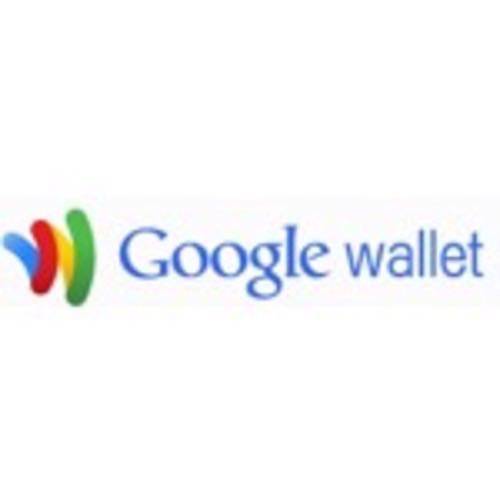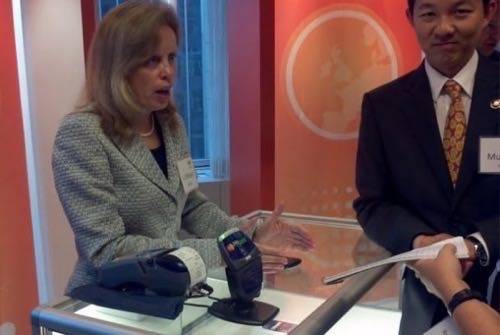When Google launched its Wallets program in late May it had a very specific set of partners set for the initial rollout. CitiBank was the primary banker, MasterCard was the financial institution, Sprint is the first carrier. There are a plethora of others as well. Yet, those partners are just the first steps.

Google’s first round of partners will lose their exclusive rights as the only members in the Wallet program “within several months,” according to MasterCard group executive for mobile and emerging payments Mung Ki Woo. He would not more specific than that but the thought is that by early 2012, Google Wallet will be able to spread its wings to other phones, carriers, banks and financial institutions. This will be good for consumers.
“85% percent of transactions are conducted in cash and check and only 15% electronic forms of commerce” said MasterCard Worldwide president and CEO Ajay Banga. “Our ability and our opportunity is not just to win martketshare within the 15% but to also do something about the amount of cash and check compared to electronic … it is not just to win share but to also grow the pie.”
Down The Road: Who Are The Winners In Mobile Payments?
In a discussion recently with a couple of researchers who are studying user behavior and mobile payments, they asked, “who are going to be the winners?” That is a loaded question. Mobile payments is going to be a several hundred billion dollar a year industry and there are a variety of verticals within it. There is e-commerce, mobile carrier billing, dongle-based payment systems (like Square) that will bring credit card billing to the masses. There is the promise of NFC and the smartphone that does everything.
Initial thoughts on winners were that the financial institutions (MasterCard, Visa, American Express) would do very well and that the dongle-based competitors would as well. Those that supply hardware and managed services to those will also do well (Intuit). Carriers, despite their want and need to set up bill-to–mobile plans, will not get as big a slice of the pie than they want. That is becoming a common refrain for the carriers and it weighs deeply on that industry segment.
Apple and Amazon will both do well in mobile payments because they control users’ credit cards and make it easy to buy. Google Checkout is similar though not quite as prolific.
Then there is Google Wallet.

Mung Ki Woo and a MasterCard executive address reporters
It is difficult to predict where Google will end up with Wallet. It rides on the prospect that NFC will become the technology of the future and that a mass of consumers will have phones that can do anything from pay for coffee to open doors. Yet, it is hard to understand why users would go to Google outside of the regular financial institutions. Visa and American Express both have wallet-like features in the pipeline (MasterCard had “nothing to say” on those types of plans).
That is why the very specific partnerships that Google set up for the initial rollout of Wallet were curious. It was not about who those particular partners are, consumes could care less if it was Visa or MasterCard, but rather that you have to be a very exact type of customer to even be able to use the product. You have to be a Sprint Nexus S user with a CitiBank account with a debit issued through MasterCard.
Do you know anyone that fits those criteria?
Hence, the loss of exclusivity is a good thing for Google and the Wallet project. The sooner, the better. When it comes down to it, the only requirements that a user should have to fulfill are that they have an NFC enabled smartphone.
MasterCard PayPass
To a certain extent, MasterCard is going to have to be involved in the Wallet process. Currently, one of the only ways to use the Google Wallet NFC product is to pay at a MasterCard PayPass terminal. Those are spread far and wide so that should not be much of a problem.

Ajay Banga addresses the crowd at MasterCard mobile payments reception
MasterCard is the going to be one of the keys to widespread adoption of NFC. One of the barriers to entry for NFC is having the terminal in place to accept payment from a smartphone. The brilliance of PayPass is that it does not need a hardware upgrade (and only nominal software upgrades) to function with Google Wallet. Once NFC smartphones become widely available, PayPass will be there waiting. The hardware does need an upgrade to institute deals and offers but the decision to offer those would be on a merchant-by-merchant basis.
MasterCard sees tremendous growth opportunities in the payments industry.
“85% percent of transactions are conducted in cash and check and only 15% electronic forms of commerce” said MasterCard Worldwide president and CEO Ajay Banga. “Our ability and our opportunity is not just to win martketshare within the 15% but to also do something about the amount of cash and check compared to electronic … it is not just to win share but to also grow the pie.”
That is where MasterCard Labs comes in. There is some very interesting innovation being done and MasterCard has some proof-of-concepts already worked out.
“What can drive the growth of the pie is technology and innovation,” Banga said. “Another part is being patient. Working with governments and merchants around the world and begin a dialogue that talks about the benefits of not using cash.”
Fractured Ecosystem

MasterCard shows off its wallet and mobile payments options worldwide with partners in the U.S., U.K., Turkey, Brazil and Korea
For Banga’s plan of “increasing the pie” of electronic payments, especially in the realm technology, some of the major market players are going to need to come together. That means that standards will need to be codified to make it easy for merchants to accept mobile payments. Competing NFC technology ISIS (backed by Sprint, AT&T and Verizon) is going to need to be compatible Google Wallet. If not, Google could just get cut out of the equation entirely.
It all comes back to one central point – the need to make payment options as easy and universal for consumers and merchants everywhere. Google’s Wallet partners losing their exclusivity will be a good start. The spread of NFC smartphones will be another. But, within the competitive realm that mobile payments has and will become, the players need to cooperate towards the end of that simple goal. The lower the barrier to entry, the faster the industry will grow.

















